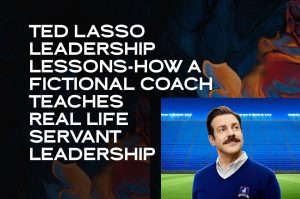
From Prison to the Jordan Brand: What Larry Miller’s Story Teaches Us About Second Chances and Leadership

What defines a leader? Is it their resume, their success, their reputation? Or is it their ability to own their past, rise through adversity, and lead from a place of truth?
When I read Jump, the memoir by Larry Miller, I was completely floored. Not just because of how far he has come, but because of how far he was willing to go to tell the truth.
Larry Miller, Chairman of the Jordan Brand at Nike, revealed a secret he kept hidden for 56 years. As a teenager, he was involved in a violent crime. At just 16 years old, he took the life of another young man and went to prison. Despite that, he eventually became one of the most powerful figures in the global business of sports and fashion. Yet for decades, he lived with the fear that his past would be discovered.
What struck me most was not just the act of revealing his story. It was how he revealed it. With humility. With complete accountability. With no excuses.
He did not minimize the pain he caused. He did not blame the environment he grew up in. Instead, he shared how this tragedy shaped every part of his identity, fueled his ambition, and haunted him throughout his career. And he showed us all what it looks like to truly take responsibility for the past while still choosing to evolve.
This is what it means to RISE Through It.
Redefining Leadership and Redemption
We often operate in systems where people are reduced to their background checks. Where one wrong decision becomes a lifetime sentence of shame. Where the idea of second chances is rarely extended to those who have been system-involved or incarcerated.
But Larry’s story forces us to ask bigger questions.
What if we judged potential based on growth, not just history?
What if the leaders of today were also the ones who had made the hardest journeys?
What if redemption became a value we embraced in corporate America, in boardrooms, in human resources?
Nike stood behind Larry when he decided to tell his story. That support matters. It sends a message that criminal justice reform and inclusive hiring practices are not just moral issues, but leadership imperatives.
How My Story Connects
I know firsthand the fear of being defined by your worst moment. After serving time in federal prison, I came home not just to rebuild my career, but to rebuild my identity. The shame was heavy. The labels were loud. The road was unclear.
But like Larry, I made a choice. I chose to lead with truth. I chose to build a life of service, connection, and impact. I chose to help others rise through struggle by sharing my story openly and unapologetically.
His courage reminded me that we are never just the worst thing we’ve done. We are also the choices we make afterward. We are our healing. We are our evolution.
My Rise Through It® Framework in Action
Larry Miller’s story is a powerful example of the Rise Through It® process I teach in keynotes and coaching.
- Reframe: He shifted his identity. He was no longer just a product of his past. He became a respected executive, a mentor, and an example of transformation.
- Identify: He acknowledged that the fear and silence were holding him back from full freedom. He chose to own the truth.
- Surrender: He let go of the image of perfection. He allowed himself to be fully seen. That surrender became the gateway to real leadership.
- Evolve: His story did not end with confession. It sparked change. He now uses his platform to support criminal justice reform and mentor youth.
A Call for Second Chances in Business and Life
We need more companies willing to look beyond résumés and reputation. We need more leaders willing to speak from the heart instead of a script. We need to create systems that believe in transformation.
Second chances should not be rare exceptions. They should be the standard we uphold when someone has done the deep work to rise.
If we want a more inclusive, equitable, and evolved version of leadership, we must begin with compassion. We must redefine what success looks like. We must stop disqualifying people for the very experiences that could make them the most effective leaders of all.
Final Reflection
This is more than a story about Larry Miller. It is a story about what is possible when we stop hiding. When we stop judging. When we choose truth over fear.
As someone who has walked a similar road, I stand in deep admiration of his bravery. And I remain committed to building a world where more people feel safe to own their story, and more organizations feel empowered to welcome them home.
Because when we rise through it, we rise together.
If this message moved you, share this story. Let’s make second chances more than a trend. Let’s make them a way of life.















